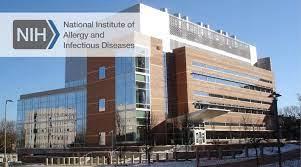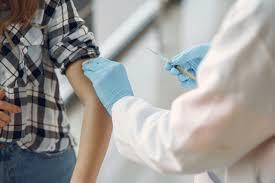 In a perceptive review of the dynamics of immunity against COVID, leading scientists at the National Institute of Allergy and Infectious Diseases (NIAID) question whether the U.S. will ever achieve herd immunity against COVID*. The authors of the article including Dr. David Morens, Senior Scientific Advisor to the NIAD Director, Gregory Folkers, Chief of Staff to the Director and Dr. Anthony S. Fauci, Director of NIAID.
In a perceptive review of the dynamics of immunity against COVID, leading scientists at the National Institute of Allergy and Infectious Diseases (NIAID) question whether the U.S. will ever achieve herd immunity against COVID*. The authors of the article including Dr. David Morens, Senior Scientific Advisor to the NIAD Director, Gregory Folkers, Chief of Staff to the Director and Dr. Anthony S. Fauci, Director of NIAID.
Generally with human or livestock infections, creating a population with a level of immunity in excess of 70 to 75 percent usually inhibits transmission of a disease agent since there are too few susceptible individuals to maintain the virus in circulation.
The authors attribute the failure of herd immunity in the U.S. to a number of characteristics of COVID. These include the ability of the virus to mutate, ongoing transmission of virus without overt symptoms, failure of infection to induce solid immunity and inconsistent protection through pockets of vaccine hesitancy and rejection.
In projecting a future without herd immunity, the NIAID leadership consider that the population of the U.S. and other nations will develop a modus vivendi with the disease based on periodic booster vaccination to limit the clinical impact of the disease, constant surveillance to detect emergence of variants and ongoing testing with quarantine of those infected. These modalities will reduce the effect of infection to the point that hospitalization will be unnecessary and that effective home treatment with oral antivirals will be a reality. Immunosuppressed individuals and those with predisposing conditions if infected and requiring hospitalization can be treated with antivirals and supportive therapy. Long-term, it is hoped that a broad-spectrum coronavirus vaccine will be developed that will be effective against a number of infections including SARS, MIRS and COVID in its various forms and possibly coronavirus infections that have yet to emerge.

The conclusion from the article is that nations will have to learn to live with COVID in its various manifestations with appropriate concessions to minimize disruption of their economies and social interaction.
*Morens, D.N. et al.(2022) The concept of classical herd immunity may not apply to COVID-19. J.infectious Diseases.doi:10.1093/infdis/jiac 109.